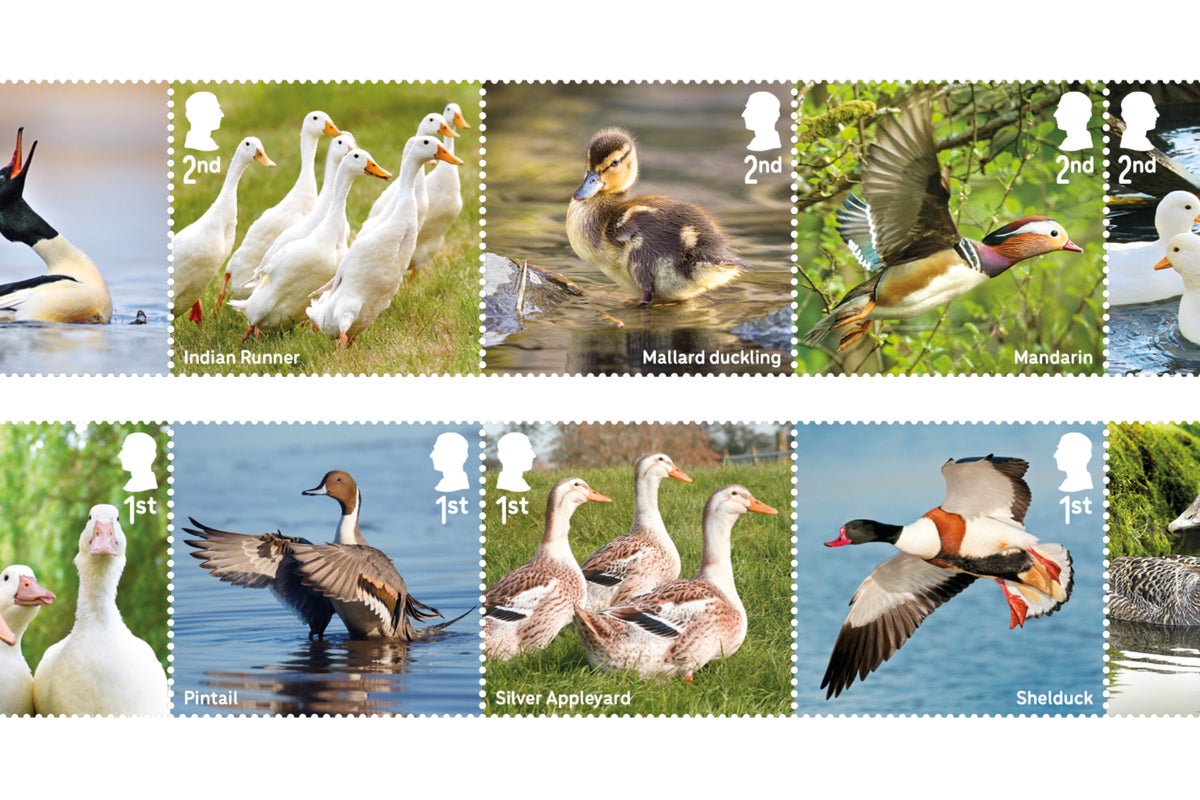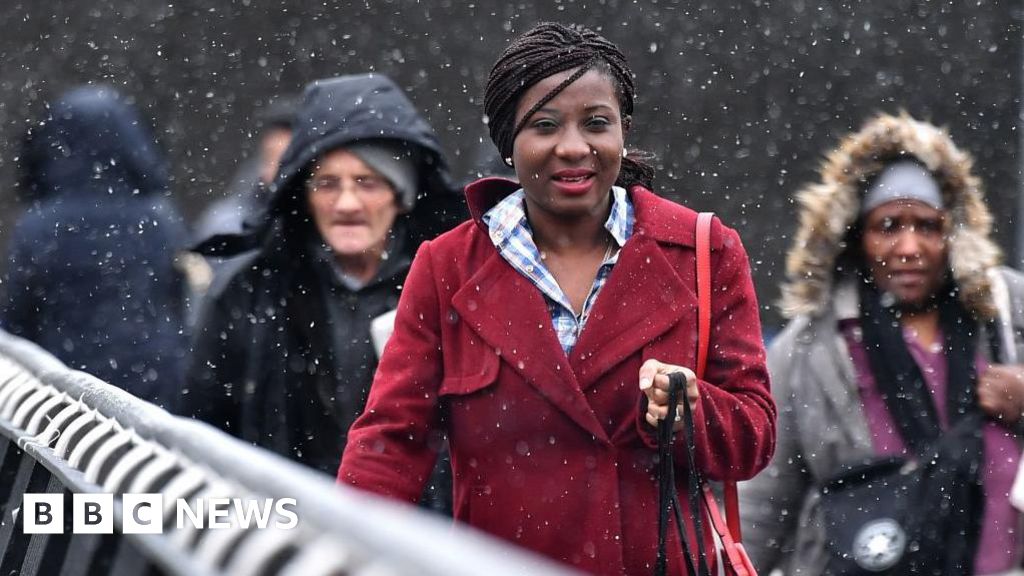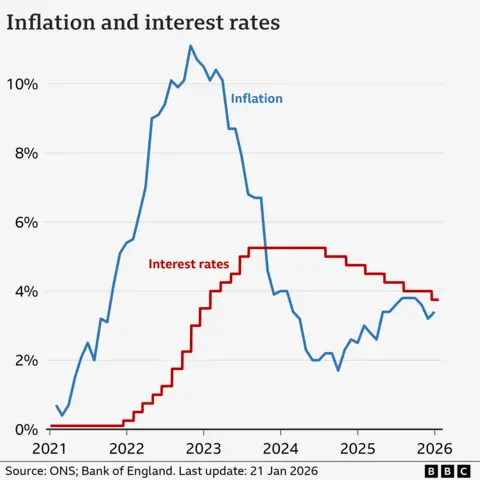Business
Royal Mail issues quacking collection of stamps celebrating duck species

A new set of stamps is being issued to celebrate the diverse range of wild and domesticated ducks found in the UK.
The stamps have images of 10 duck species and breeds including goosander, Indian runner, mallard duckling, aylesbury and the eider.
Royal Mail worked with Steve Ormerod, Professor of Ecology, Water Research Institute/Cardiff School of Biosciences at Cardiff University, and waterfowl author, Dr Chris Ashton, on the stamps.
There are more than 120 species of duck worldwide, including 22 found in the UK.
David Gold, Royal Mail’s director of external affairs and policy, said: “We are pleased to showcase the beauty and variety of wild and domesticated duck species found across the UK, celebrating our rich wetland wildlife.
“Most of us will recognise some of the ducks on these stamps but we hope that the set will help to raise awareness of the less well-known species.”
Mr Ormerod said: “The UK’s wild ducks are among the most elegant of all our birds. Their diversity of life histories, behaviours and calls evokes the character of habitats ranging from local ponds, lochans and lakes to rivers, wetlands and coasts.
“Ducks have also played a central role in the human history of animal domestication – for example for food, pest control or as protected ‘rare breeds’. This spectrum from cultural connection to wilderness is celebrated in this beautiful collection of Royal Mail stamps.”
The stamps, and a range of collectible products, are available to pre-order from today and go on general sale from September 11.
Business
Are UK interest rates expected to fall again?

Kevin PeacheyCost of living correspondent
 Getty Images
Getty ImagesThe Bank of England has cut interest rates from 4% to 3.75%, the lowest level since February 2023.
Analysts are divided about whether the Bank will cut again when it next meets in February.
Interest rates affect mortgage, credit card and savings rates for millions of people.
What are interest rates and why do they change?
An interest rate tells you how much it costs to borrow money, or the reward for saving it.
The Bank of England’s base rate is what it charges other banks and building societies to borrow money, which influences what they charge their own customers for mortgages as well as the interest rate they pay on savings.
The Bank moves interest rates up and down in order to keep UK inflation – the rate at which prices are increasing – at or near 2%.
When inflation is above that target, the Bank typically puts rates up. The idea is that this encourages people to spend less, reducing demand for goods and services and limiting price rises.
What has been happening to UK interest rates and inflation?
The main inflation measure, CPI, has dropped significantly since the high of 11.1% recorded in October 2022.
However, it was 3.4% in the year to December 2025 – up from 3.2% in November, and slightly higher than analysts had expected.
The Office for National Statistics (ONS) – which measures inflation – said the increase was driven by higher tobacco prices and the cost of airfares over the Christmas and New Year period.

The Bank of England’s base rate reached a recent high of 5.25% in 2023. It remained at that level until August 2024, when the Bank started cutting.
Five cuts brought rates down to 4%, before the Bank held rates at its meetings in September and November 2025 before the December cut.
Are interest rates expected to fall again?
Most analysts had expected the December cut, but the vote among members of the nine-member monetary policy committee (MPC) was divided, with only five in favour.
The Bank said rates were likely to continue dropping in the future, but warned decisions on further cuts in 2026 would be contested.
“We still think rates are on a gradual path downward but with every cut we make, how much further we go becomes a closer call,” said the Bank’s governor Andrew Bailey.
If inflation continues to rise – or just fails to fall – further rate cuts are less likely.
Mr Bailey has also repeatedly warned about the continuing impact of US tariffs, and political uncertainty around the world.
The next interest rate decision is on Thursday 5 February.
How do interest rate cuts affect mortgages, loans and savings rates?
 Getty Images
Getty ImagesMortgages
Just under a third of households have a mortgage, according to the government’s English Housing Survey.
About 500,000 homeowners have a mortgage that “tracks” the Bank of England’s rate. A 0.25 percentage point cut is likely to mean a reduction of £29 in the monthly repayments for the average outstanding loan.
For the additional 500,000 homeowners on standard variable (SVR) rates – assuming their lender passed on the benchmark rate cut – there would typically be a £14 a month fall in monthly payments for the average outstanding loan.
But the vast majority of mortgage customers have fixed-rate deals. While their monthly payments aren’t immediately affected by a rate change, future deals are.
Mortgage rates have been falling recently, partly owing to the expectation the Bank would cut rates in December.
As of 21 January, the average two-year fixed residential mortgage rate was 4.77%, according to financial information company Moneyfacts. A five-year rate was 4.87%.
The average two-year tracker rate was 4.41%.
About 800,000 fixed-rate mortgages with an interest rate of 3% or below are expected to expire every year, on average, until the end of 2027. Borrowing costs for customers coming off those deals are expected to rise sharply.
Mortgage calculator
You can see how your mortgage may be affected by future interest rate changes by using our calculator:
Credit cards and loans
Bank of England interest rates also influence the amount charged on credit cards, bank loans and car loans.
Lenders can decide to reduce their own interest rates if Bank cuts make borrowing costs cheaper.
However, this tends to happen very slowly.
 Getty Images
Getty ImagesSavings
The Bank base rate also affects how much savers earn on their money.
A falling base rate is likely to mean a reduction in the returns offered to savers by banks and building societies.
The current average rate for an easy access savings account is 2.45%, according to Moneyfacts.
Any further cut in rates could particularly affect those who rely on the interest from their savings to top up their income.
What is happening to interest rates in other countries?
In recent years, the UK has had one of the highest interest rates in the G7 – the group representing the world’s seven largest so-called “advanced” economies.
In June 2024, the European Central Bank (ECB) started to cut its main interest rate for the eurozone from an all-time high of 4%.
At its meeting in June 2025 the ECB cut rates by 0.25 percentage points to 2% where they have remained.
The US central bank – the Federal Reserve – has cut interest rates three times since September 2025, taking them to the current range of 3.5% to 3.75%, the lowest since 2022.
President Trump had repeatedly attacked the Fed for not cutting earlier.
Business
UK inflation rises to 3.4%, driven by tobacco and airfares

Inflation has risen to 3.4% in the year to December, driven by higher tobacco prices and airfares, according to official figures.
The increase in average prices across the UK economy – the first in five months – was just above expectations, with many economists predicting only a slight uptick to 3.3%.
The cost of airfares was a contributor “likely because of the timing of return flights over the Christmas and New Year period”, the Office for National Statistics (ONS) said. It also reflected an increase in tobacco duty introduced in late November.
It is the last set of monthly inflation figures released before the Bank of England’s decision on interest rates in February.
In addition to tobacco and transport prices, “rising food costs, particularly for bread and cereals, were also an upward driver,” said ONS chief economist Grant Fitzner.
“These were partially offset by a fall in rents inflation and lower prices for a range of recreational and cultural purchases.”
In response to the figures, Chancellor Rachel Reeves said her priority was cutting the cost of living, citing measures in her November Budget including a freeze to rail fares and prescription charges.
“Money off bills and into the pockets of working people is my choice.
“There’s more to do, but this is the year that Britain turns a corner,” Reeves said.
Inflation in the UK is a measure of the Consumer Prices Index, which is a virtual basket of hundreds of everyday goods and services selected by the ONS that includes things like bread, fruit, furniture and different items of clothing.
The prices of these items are tracked by the ONS over the previous 12 months, and the basket is regularly updated to reflect shopping trends.
Business
AU Small Finance Bank net up 26% to Rs 667 crore – The Times of India

MUMBAI: AU Small Finance Bank, which has received RBI nod to convert into a commercial bank, reported a net profit of Rs 667.66 crore for the December 2025 quarter, up 26.3% from Rs 528.45 crore in the corresponding quarter last year. The improvement was driven by strong growth in core earnings and a sharp reduction in credit costs, which offset higher operating expenses.Net interest income (NII) rose 15.8% year-on-year to Rs 2,341.27 crore, compared with Rs 2,022.71 crore in the December 2024 quarter. Interest earned increased to Rs 4,727.47 crore from Rs 4,113.48 crore, while interest expended rose to Rs 2,386.20 crore from Rs 2,090.77 crore. On a sequential basis, NII increased 9.2% from Rs 2,144.42 crore in the September 2025 quarter, reflecting improved yields on advances and relatively stable funding costs.During the quarter, the bank also announced a series of board and senior management changes as part of a broader leadership realignment. The board approved the appointment of Phani Shankar as non-executive independent director for a three-year term. It also cleared the appointment of Vivek Tripathi, chief credit officer, as whole-time director, subject to regulatory and shareholder approvals. Uttam Tibrewal, who will complete his current term as whole-time director in April 2026, will continue as deputy CEO, while Divya Sehgal, non-executive non-independent director, resigned after completion of the integration of Fincare Small Finance Bank. V G Kannan is set to complete his second term as independent director in January 2026.Other income increased 17.0% year-on-year to Rs 723.80 crore from Rs 618.41 crore a year earlier, supporting overall revenue growth. Total income for the quarter rose to Rs 5,451.26 crore, compared with Rs 4,731.89 crore in the corresponding period last year.Operating expenses climbed 28.8% year-on-year to Rs 1,849.75 crore from Rs 1,436.21 crore, driven by higher employee costs and expansion-related spending, including regulatory-linked adjustments. Despite this, operating profit before provisions remained broadly stable at Rs 1,215.31 crore, compared with Rs 1,204.91 crore in the year-ago quarter.Provisions (other than tax) declined 34.0% year-on-year to Rs 331.14 crore from Rs 501.68 crore, reflecting lower credit costs. Tax expense increased to Rs 216.51 crore from Rs 174.78 crore, in line with higher profitability.Asset quality remained stable, with gross NPAs at Rs 2,880.54 crore, compared with Rs 2,335.51 crore a year earlier, while the gross NPA ratio was largely unchanged at 2.30% against 2.31% in the corresponding quarter last year. The bank’s capital position strengthened, with the capital adequacy ratio improving to 19.01% from 18.01%, providing headroom for future growth.
-

 Tech1 week ago
Tech1 week agoNew Proposed Legislation Would Let Self-Driving Cars Operate in New York State
-

 Entertainment1 week ago
Entertainment1 week agoX (formerly Twitter) recovers after brief global outage affects thousands
-

 Sports6 days ago
Sports6 days agoPak-Australia T20 series tickets sale to begin tomorrow – SUCH TV
-

 Business5 days ago
Business5 days agoTrump’s proposed ban on buying single-family homes introduces uncertainty for family offices
-

 Politics4 days ago
Politics4 days agoSaudi King Salman leaves hospital after medical tests
-

 Tech6 days ago
Tech6 days agoMeta’s Layoffs Leave Supernatural Fitness Users in Mourning
-

 Tech6 days ago
Tech6 days agoTwo Thinking Machines Lab Cofounders Are Leaving to Rejoin OpenAI
-

 Fashion4 days ago
Fashion4 days agoBangladesh, Nepal agree to fast-track proposed PTA






